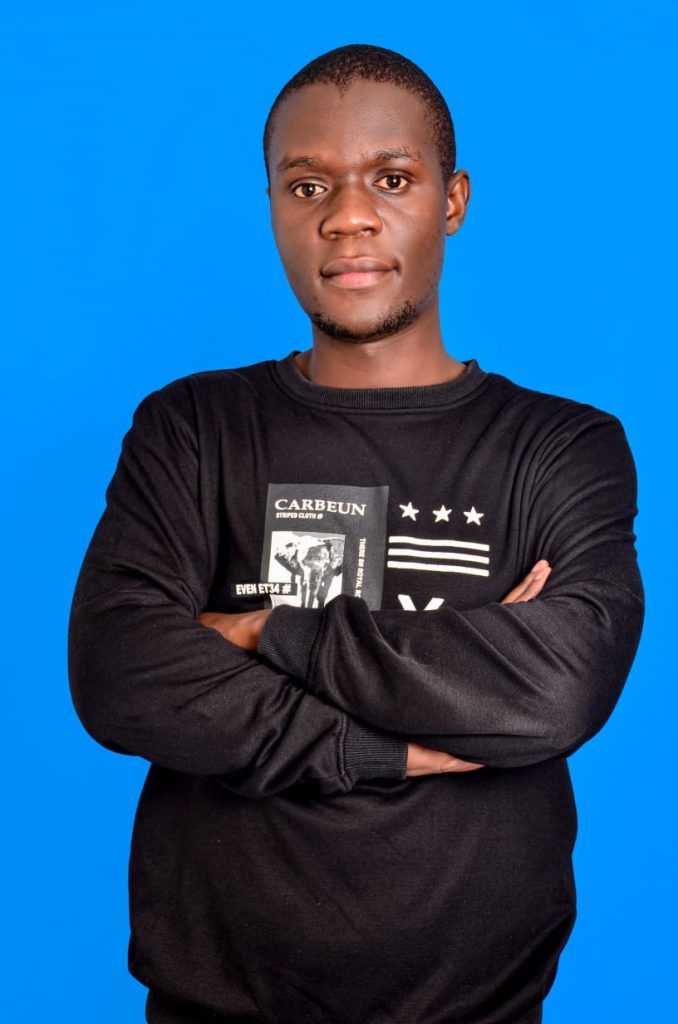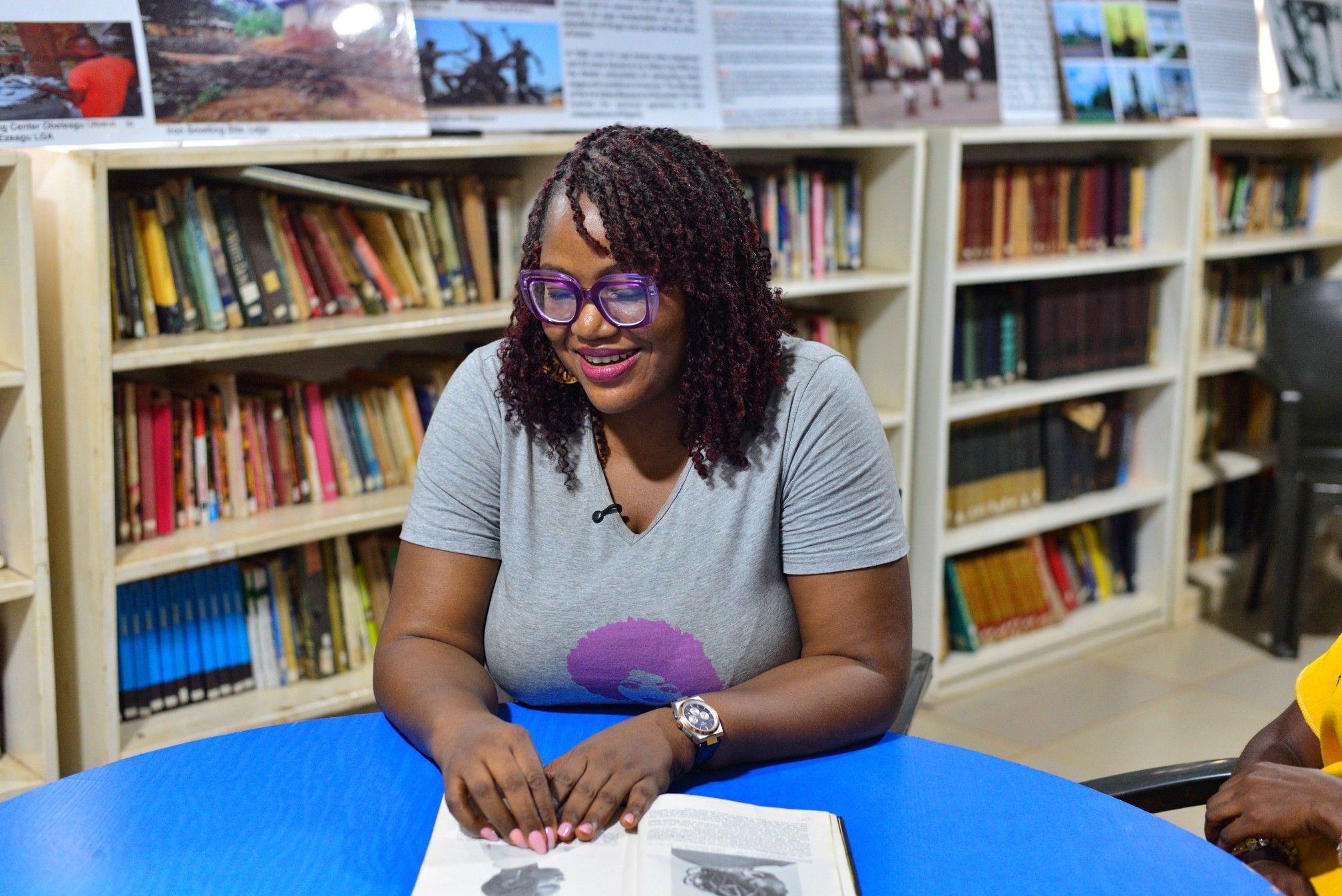He glides through his threads – a series of connected tweets - like a seasoned pro. If you rummage through the literati internet sphere, he’ll be one of the first names that will pop up. So popular, he sold 100 copies of his books on Twitter in just a day, not to mention that it falls 100 copies short of his best-ever tally in a day. His maiden book, Campus Exile – which is based on life in campus with different sub-plots like a prostitution ring and student drug dealers – was inspired by a period in his life when he was losing himself in a hazy maze.
“In my second year at the University of Nairobi, my identity crisis went full throttle and I ended up finding comfort in drugs. I stopped going to class completely, which culminated in my dropping out,” Sakwah Ongoma says simply as he lifts the veil on his not-so-generic past life. Buoyed up by the success of his first book, Sakwah wrote his second one, Premium tears, which is about a company supposedly dealing in affordable housing, tricking unsuspecting investors into falling for the scam. “The adapted TV show based on Premium Tears will soon hit your TV screens,” he says with a smile.
On a Google Meet call from his humble abode, where he is writing the script for the TV show, I ask Sakwah whether it occurred to him that he would end up being a writer. He pauses, and a sudden wave of nostalgic melancholy hits him, “Never in a million years. After dropping out of campus, I went to stay at my cousin’s place in Lucky Summer Estate temporarily, as I planned my next move. It was during the long holidays so nobody knew that I had quit school. I thought: ‘I have to find a way to inform my cousin and the whole family.’ I bought an exercise book and wrote why I had dropped out– and left it on the table– with an epilogue that I would not be the first person in the family to do it.”
Sakwah lost his mother when he was just five years old. Shortly afterward, his maternal grandparents took him under their wing and raised him as their own child. What about your father? I ask, sensitively. “I don’t know whether this is a correct label or perhaps I have been desensitized, but I am bastard – a so to speak illegitimate child. I have never met my father. I know where I can find him but I am not bothered. I feel like it is too late now to make a connection.”
Being raised by maternal grandparents was never an issue for Sakwah until he made that transition from a child to a man. Growing up as a child, his grandparents’ love had cushioned him from the ‘you are not from here’ hushed voices. In the highly patriarchal tribe where Sakwah hails from, people are socialized in a paternal set-up. “As soon as I got into high school, my identity crisis kicked in. The once hushed voices became more projected and what I had seen as normal – being raised by maternal grandparents – began to seem bizarre. Whenever I got into a heated argument with some of my relatives, the issue of my identity would come up. The thing with a lack of identity is that it eats away at you slowly,” Sakwah says quietly as he delves deeper into the darker strands of his story.
He looks up while scratching his chin. Having weathered the identity storm in high school, his stellar performance earned him a place at the University of Nairobi to pursue a bachelors in biochemistry. Thoughtfully, he remarks, “I wanted to study anything but biochemistry. In fact, Law was my first choice but I couldn’t qualify because, ironically, my English grade hadn’t been good enough. I didn’t have anyone to guide me through my selections.” It was peer pressure coupled with the lack of identity, that had led him to drop out of campus, and not his attitude towards his course, Sakwah admits. The dropping out started with him missing a few classes. Like alcoholism, it was a slow descent.
So what happened to you after your cousin read the story about you dropping out? “Ah, what happened?” says Sakwah wistfully. “He kicked me out. He said that he couldn’t house a dropout. I packed my bags and left for upcountry without the foggiest idea what I was going to do with my life.”
With a bag in hand, and having been disfigured mentally, the last thing he wanted was being talked down to when he got home, but that’s exactly what happened. A family baraza had been convened to discuss him, and his so-called flimsy excuses of dropping out of school. “They told me that they were deeply disappointed in me. Most of them had not taken any part in raising me or paying my school fees so I felt they were being insincere. I was threatened that I would be ostracized,” Sakwah explains with sadness on his face. The only person who stood by him was his grandmother. “My grandmother understood me. I told her to give me more time to figure things out,” he says pensively.
For the next one year, Sakwah would work as a gardener earning a paltry two hundred shillings a day. “Those are the days that maketh a man,” he discloses. He would till farmland with people who had barely stepped into a classroom. He was as low as any educated man could ever go. At rock bottom, he found solace in reading books and started sharing short written jokes on Facebook. One of his written jokes drew the attention of Churchill the comedian, who got in touch and offered him a chance to audition in a campus tour. “I saw the message and couldn’t believe it. It was an opportunity for me to come back from the abyss. With the little savings I had, I came to Nairobi, and on the D-day, I got on stage to perform,” he says in a wobbly voice. “You see, performing is not as easy as writing jokes, not that writing is easy either. I got on stage and froze, and was booed off it.”
Sakwah Ongoma breaks into a musing and takes a breath.
"That must have been tough for you, I presume?"
“Yeah, it was tough.”
Dejected, he went back home, and for the next four months continued with his work as a gardener until an incident happened. His aunt – who lived not so far off – requested him if he could supervise crop harvesting for her. That meant that he’d be gone for a few days. Out of adoration for his aunt, he accepted. When he came back, he got into a confrontation with his uncle, over his supposed disappearance, who ended up punching him. “It was very petty. Imagine at twenty-one years old having to explain yourself to an uncle who never raised you? I had to restrain myself from punching back,” he says.
Around that time, a stranger online got in touch with him and offered him a job. He traveled to Nairobi but when he tried to call him, his phone was off. When he finally got hold of him, he found out that it was a network marketing job. And network marketing doesn’t have a good reputation here in Kenya.
I put my pen down, lean back, and then criss-cross my fingers.
"You really have been through a lot, what else?"
He told me how a friend had offered to host him for a while as he tried out academic writing but wasn’t paid the full amount. How, he started narrating stories on Facebook, one of which landed him in trouble with his former high school. How someone reached out to him to ghostwrite a book but he wasn’t paid for his sweat. And how he’d paid a local publisher to edit, and help him publish his first book but he didn’t deliver. “It has been tough,” he says, sighing.
Sakwah exhales. “It hasn’t been all doom and gloom. Someone volunteered to sponsor Campus Exile to the tune of three hundred thousand shillings. I am preparing a script for Premium Tears. I am working on a book titled Goons of Nairobi. And my collection of short stories; The Ghost From Mogadishu and Other Stories– that is available on pdf form– is not doing that bad. ‘Did I mention that the pdf is only two hundred shillings?’ You should tell people to buy,” he says with a chuckle.
Sakwah Ongoma’s story is emotionally heavy. But he’s still here pushing. “There’s a lot more. Maybe one day I’ll write an autobiography,” he tells me.
You can get in touch with him for copies on his social media platforms;
https://www.facebook.com/profile.php?id=100057652951441





